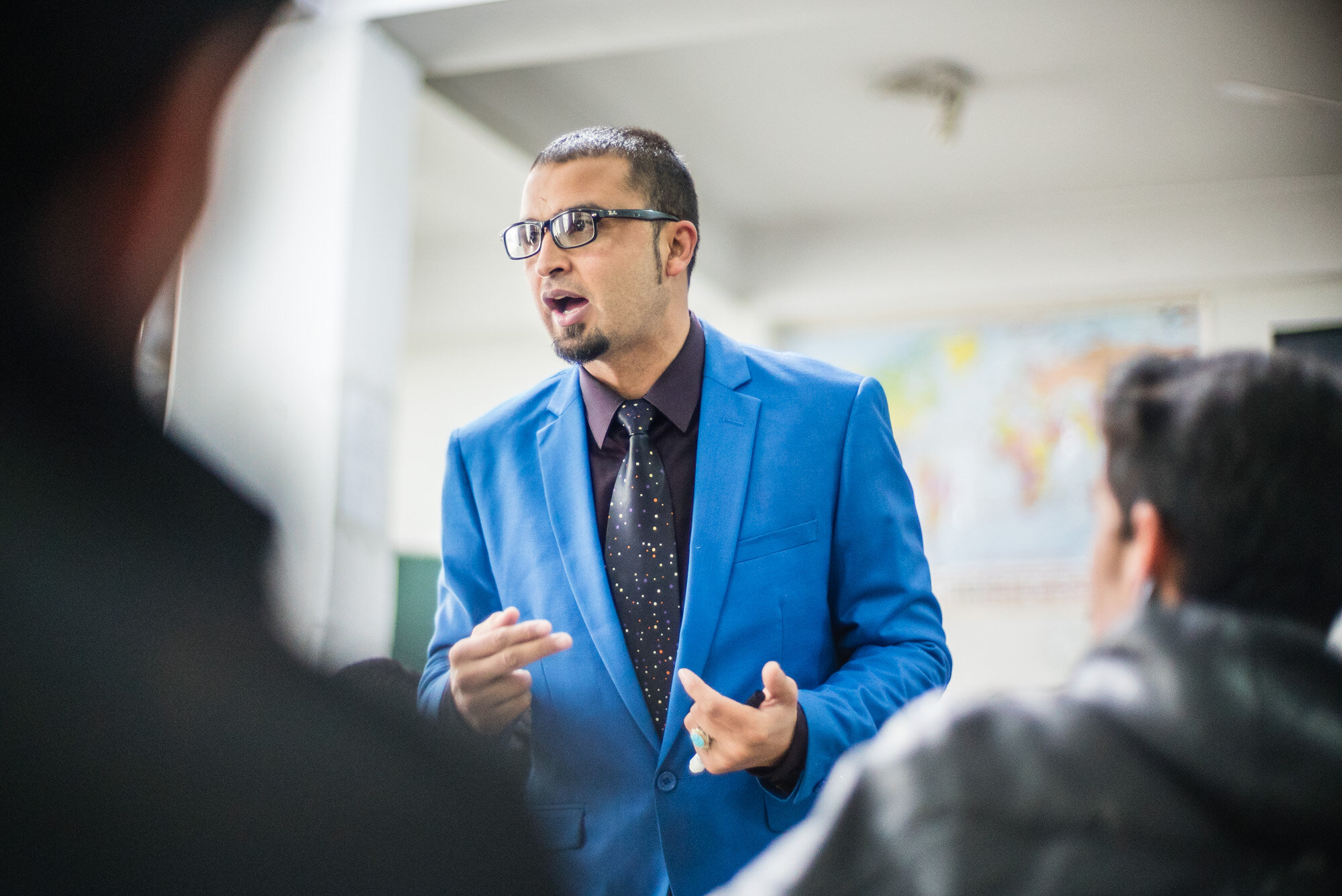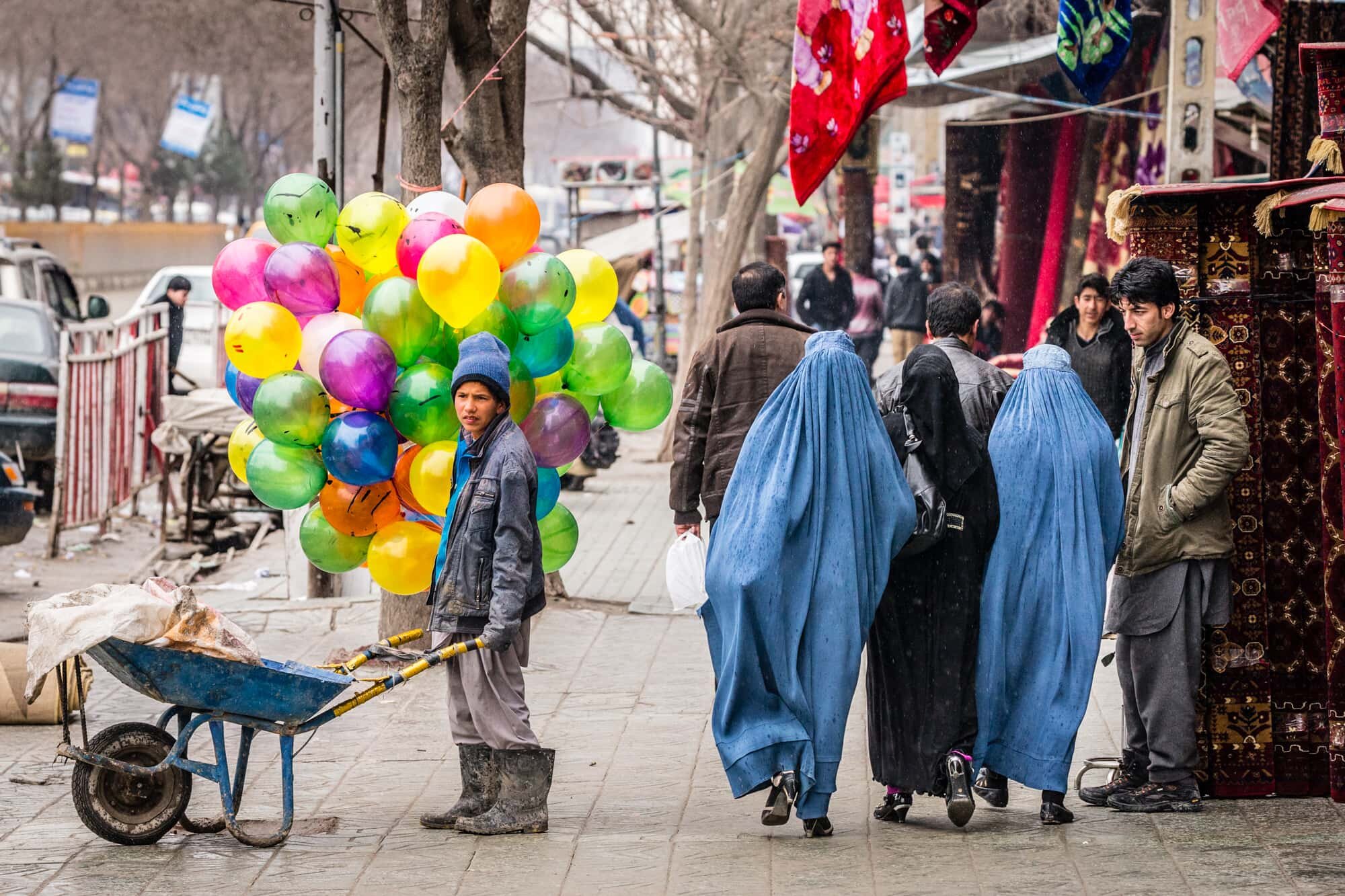
Their lives on the line
Women human rights defenders at risk in Afghanistan
Client: Amnesty International“Anti-government groups are targeting prominent and outspoken women’s rights advocates [in order to] spread fear among other women’s rights activists [and] stop their activities.”
These words were spoken by Rohgul Khairkhwah, an elected woman Senator for Nimroz province in southern Afghanistan and a recipient of the Ministry of Women’s Affairs ‘Bravest Woman in Afghanistan’ award.
Senator Khairkhwah knows of what she speaks. On 4 August 2013, two days before the Muslim festival of Eid, the Taliban attacked her vehicle as she drove through Ghazni province on her way home. With her in the car were her husband and their three children, her brother and his three children. The Senator’s seven-year old daughter and brother were killed in the attack. Her other daughter, who was 11 at the time, was paralyzed as a result of her injuries.
The Senator was shot nine times, sustaining wounds to her liver, lung and leg. She also lost a finger, and three others are now paralyzed. She spent the next two months in hospital recuperating from her injuries. Despite her ordeal, Senator Khairkhwah returned to work after she was discharged. Given what she suffered, people did not expect her to resume her position in the Senate, but as she told Amnesty International: “I want to motivate other women to continue their work.”
From the Amnesty International report: Their lives on the line
Commissioned by Amnesty International
Photography commissioned by Amnesty International to illustrate their report on women human rights defenders at risk in Afghanistan. The report was based on interviews with more than 50 women human rights defenders from 13 provinces as well as contributors from civil society, government and the diplomatic community. Whilst only a few were able to be photographed, they represent the many brave people involved in this often dangerous work, and illustrate some of the roles they play in defending and promoting the rights of women.
Cover photograph: Fawzia Nawabi, investigator at the Afghanistan Independent Human Rights Commission, Mazar-e-Sharif, gathers information in a local women's prison.
Maria Bashir
Maria Bashir is Afghanistan’s only female prosecutor general, based in Herat. She has braved serious threats to combat corruption, crime, and domestic abuse, and annually handles hundreds of cases of violence against women. But Bashir’s championing of the cause of abused women has made her a target — her house has been bombed and her children live with death threats.
Sherifa Shahab
Sherifa Shahab is the police ombudsman for the Afghanistan Independent Human Rights Commission in the western Herat province. She deals with cases of police abuse against civilians, as well as fighting abuse within the police force, particularly endemic sexual harassment of women police officers. In the photo, Sherifa consoles the father of a detainee who complained of ill treatment at the hands of the police.
Aziza Khairandish
Aziza Khairandish responds to a call about a case where a woman’s nose and ears were cut off by her husband, who is now on the run — Aziza is trying to get the authorities to act. Aziza used to educate girls in secret when her home town of Herat was under Taliban control. Since 2006, she has headed the western regional office of the Afghanistan Civil Society & Human Rights Network.
Still based in Herat, she promotes the rights of women and girls not just through awareness raising and youth forums, but also by directly challenging hard-line mullahs – something that leaves her and her family exposed to threats.

Herat, Afghanistan
Habib-Uk-Rahman
Defending women's rights is not restricted to women only. Habib-Uk-Rahman works as a lawyer for an organisation that provides legal aid and protection for women and girls fleeing violence in Kabul. “There should be men supporting every institution for women like this one,” he said.

Demonstration in Kabul by civil society organizations against the sexual harassment of girls and women in Afghanistan.
Manizha Paktin
Civil engineer Manizha Paktin, director and co-founder of Stand Up for Afghan Women, instructs builders at a construction site in Kabul. Manizha was recently recognised and awarded for her work by IWEC, a New York based NGO whose mission is to connect and develop a global network of successful women business owners.
Jawad Sadat
Jawad Sadat is a university law professor and human rights specialist, who is also constantly in demand for interviews by local media about women’s rights. He uses his multiple public platforms to raise awareness with local communities about the rights of women and girls.

Kabul, Afghanistan
Conditions for women and children living in Kabul’s displacement camps are unimaginably tough, particularly during the winters.
A mother responds warmly to my guide and translator, Masih Sadat. It is a common reaction and an indication of the respect communities hold for the men and women who fight tirelessly for the rights of others.
On the streets of Kabul, many of the child vendors come from these displacement camps. Most are boys from families affected by conflict-related issues which commonly include displacement or the loss of a father – the family's traditional breadwinner, a role the eldest boy is duty-bound to take on.
The boy in the picture works as a courier transporting small quantities of building materials, whilst also selling balloons.

Police in Kabul protect a women’s rights march at risk of being attacked.
Najiba Ayubi
Najiba Ayubi has been at the forefront of Afghan journalism for almost three decades, and today heads one of the country’s largest media groups, Killid. Her outspokenness has come with a cost — she has faced harassment and threatening phone calls throughout her career, and a few years ago had to pretend to be someone else when gunmen showed up at her door following a report criticizing two MPs.
Fawzia Nawabi
Fawzia Nawabi, investigator at the Afghanistan Independent Human Rights Commission, Mazar-e-Sharif, shares stories at a shelter for women at risk. Fawzia was chosen for the cover of the Amnesty International report and is the lead image for this feature.

Students at Rana University in Kabul, Afghanistan.










